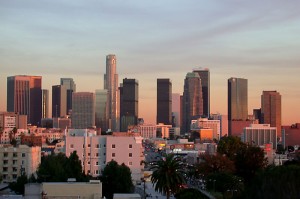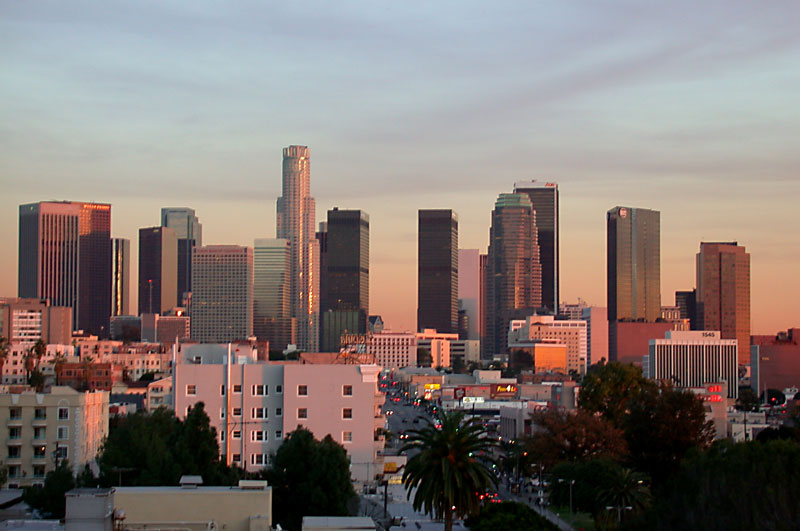 This story was originally published by the Center for Public Integrity
This story was originally published by the Center for Public Integrity
In a policy debate watched nationally, the city of Los Angeles came closer Monday to getting rid of most — but not all — controversial monetary fines for students who are tardy or truant from school.
For several years, students in Los Angeles have complained about hefty $250-plus fines for being tardy, and about police officers who staked out schools to catch students sometimes only minutes late. The ticketing also requires students to go to court, with parents, during school hours, so they miss more class time and parents miss work.
On Monday, the Los Angeles City Council’s Public Safety Committee voted to set limits on how police enforce the city’s 1995 daytime curfew law and to stop imposing the $250 fines, which, once fees and court costs are added on, can rise to $400 or more for one violation.
The curfew amendments — if they get full city council approval on Feb. 22 — would replace the $250 fines with graduated penalties emphasizing counseling. Students ticketed once or twice would be required to participate in an attendance-improvement plan or in counseling or community service. If ticketed a third time, the ordinance would call for a possible monetary fine whose amount is still being negotiated, said Michael de la Rocha, legislative deputy to Los Angeles City Council member Tony Cardenas, who sponsored the amendments.
Cardenas wanted to end all fines, and would prefer capping a third-strike fine at $20, which in reality would end up costing students more, given extra fees that get tacked on, de la Rocha said.
As of January, Los Angeles' students won't be required to pay monetary fines — for now — regardless of what the city council does. Last month, Michael Nash, the county’s presiding juvenile court judge, instructed all court officers to stop imposing daytime curfew fines on ticketed students throughout the county and instead order them to show improved attendance, or, if that fails, mandatory counseling or community service.
Nash recently told the Center for Public Integrity he didn’t think the fines were effective because many students didn’t pay them — they were afraid to tell their parents — and as a result were accumulating penalties of thousands of dollars and not being allowed to get driver’s licenses. From now on, the court’s ultimate penalty, Nash said, will be blocking or suspending a driver’s license but not collecting money.
Cardenas said his proposal to end fines would have brought the city's ordinance into line with Nash's thinking.De la Rocha also noted that once Nash steps down as presiding judge, his successor could decide to restore imposing daytime curfew fines in Los Angeles and in other jurisdictions inside the county.
The Los Angeles Police Department’s position on Cardenas' amendments was that the city's ordinance should still include a monetary fine, “a heavy stick,” de la Rocha said, and it should be up to a judge’s discretion whether to impose that or not.
Nash was chairman of a task force on school attendance that released a report this month attacking daytime curfew fines as falling disproportionately on low-income families and students who depend on unreliable public transit or have other reasons for arriving tardy, such as caring for younger siblings. The report called for other measures to try to boost school attendance, including counseling to get to root problems for tardiness or disengagement from school.
Manuel Criollo, an organizer with the Los Angeles-based Labor Community Strategy Center, said his group wanted to end fines, but accepted that Cardenas had to “reach out” to police to get backing for amendments. Criollo served on the attendance task force with Nash.
On Monday, the public safety committee also adopted additional Cardenas amendments. They include forbidding police from ticketing students in areas immediately around schools, and for officers to avoid stopping students, especially during the first hour of school, who are clearly on their way to classes. Officers also have to show they tried to talk to students to determine if they were truly truant.
Criollo’s group lobbied for these restrictions because of students being stopped, handcuffed and, in some cases, treated in an allegedly rough manner by officers, as the Center for Public Integrity reported recently.
Last year, both the chiefs of the Los Angeles Police Department and the Los Angeles School District Police issued directives for officers to follow these guidelines and stick to the “spirit” of the daytime curfew law. But some students still complained of how police behaved toward them.
Criollo said his group hopes to work with Nash to see if Los Angeles students who are ticketed can avoid having to take time off school for mandatory court appearances and instead enter into out-of-court counseling agreements with school and city supervision.
Nash’s directive and the amendments before the Los Angeles City Council have attracted support from civil-rights groups nationwide concerned that daytime curfews and large fines are actually pushing students away from school. Some students in Los Angeles said they opted not to go to school at all if they felt they might arrive late.
Los Angeles “is a trend setter for the rest of the country — to show that there are other ways to get youth engaged in school,” said Judith Browne-Dianis, co-director of the Advancement Project, a Washington, D.C.-based group concerned with education policies.
Click here for further coverage of this story.
